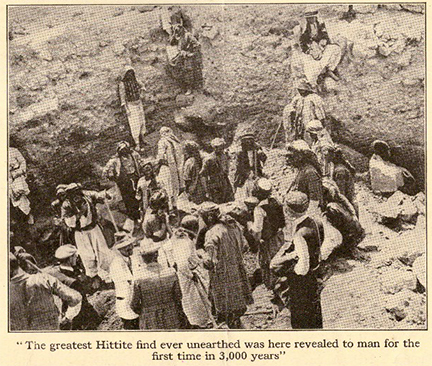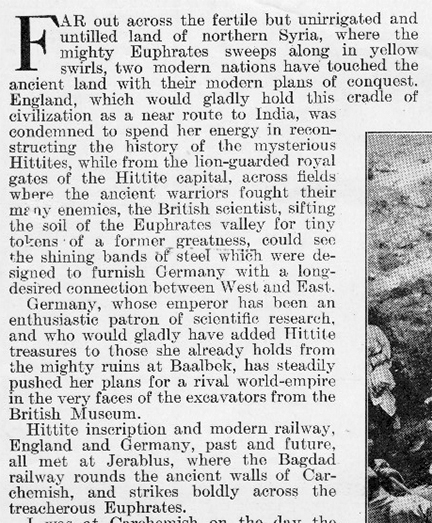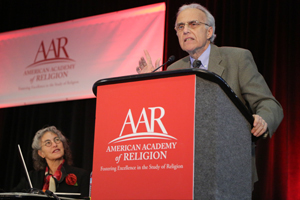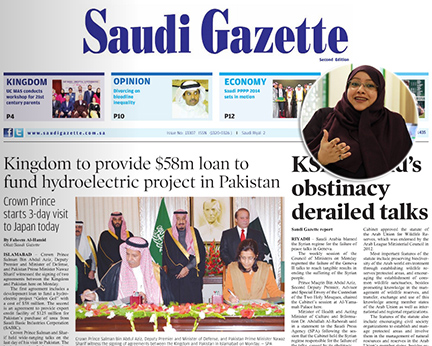
Turkey – “The sick man of Europe”, by John Leech, Punch, September 17, 1853
For a fascinating collection of cartoons, many from Punch, since 1853, check out the website “A Cartoon History of the Middle East,” compiled by Peter Casillas.

Turkey – “The sick man of Europe”, by John Leech, Punch, September 17, 1853
For a fascinating collection of cartoons, many from Punch, since 1853, check out the website “A Cartoon History of the Middle East,” compiled by Peter Casillas.

At a juice bar in Cairo, two men posed by a photograph of Gen. Abdul-Fattah el-Sisi. The general has become a popular figure among many Egyptians; Narciso Contreras for The New York Times
The future of Egyptian democracy: Islamism beyond the Muslim Brotherhood
by Yasmin Moll, The Immanent Flame, August 29
A few weeks after the ouster of Egyptian president Mohamed Morsi in 2013, the New York Times ran this headline: “Egyptian Liberals Embrace the Military, Brooking No Dissent.†The accompanying photograph showed a man with a full beard and shaved moustache in the Salafi style, a prominent prayer mark (a “raisin†in the Egyptian vernacular) on his forehead. Behind the man is a wallpaper of Muslim pilgrims circumambulating the Kaaba in Mecca. A framed portrait of then-general and coup master Abdel Fattah el-Sisi leans against beige tiles stickered with several Qur’anic verses. The headline limits the military’s support base to (secular) liberals, while the image shows us it actually extends beyond this narrow stratum.
With some exceptions, such as analyses published in this series, most scholarly accounts dovetail with media framings of Egypt’s fraught political scene since the 2011 revolution as primarily a struggle between secularism and Islamism. But the “secularism versus Islamism†narrativÂe is a political one—it performs important legitimizing labor for a plethora of social actors in Egypt, from the Brotherhood to deposed dictator Hosni Mubarak’s allies and both liberal and leftist activists alike. It is, however, of very limited analytical utility in making critical sense of what is actually at stake in the current impasse for the many Egyptians who do not subscribe to a secularized conception of government, yet whose religiosity cannot be conflated with the Islamism of the Muslim Brotherhood. Continue reading Islamism beyond the Muslim Brotherhood

I recently across a copy of The Christian Herald from December 1, 1915 and the lead article by John Maynard Owens is on a recent trip he took to Syria and Iraq. The images are from a century ago and I will attach a few excerpts from the article.



Misapprehending Muslims and the Media’s Misinformation
by Hasan Azad, Huffington Post. November 17, 2012
My friend Sim is a strapping young man in his 20s. He is fitter than I could ever dream of becoming. Sim has run in the New York marathon for two years in a row, and hopes to run in many more to come. When you meet Sim you’re immediately struck by the warmth of his smile. Opinions are unanimous, Sim has a heart of gold — and the good looks to go with it!
Sim was recently flying back to New York from visiting with his parents in Texas, when the chipper middle-aged Texan lady sitting next to him asked in the most disarmingly matter-of-fact manner that only Texans are capable of, “You’re not a Muslim are you?” A question possibly prompted by Sim’s full-length beard and turban. When he responded, “No, I’m Sikh,” the woman was visibly relieved, so much so she hugged Sim (short for Simran, in case you’re wondering), adding “I’m so glad you’re not a Muslim. They want to take over America with ‘Siran’!” Simran, being the gentleman that he is, smiled politely, but later revealed to me that he had no idea how to respond to the exchange. And it’s true, it wasn’t a “simple” exchange that had occurred, which could or should be explained away as another example (and aren’t there so many?) of unwitting Texan folk who can’t tell the difference between a Sikh and a Muslim. Continue reading Sikh and ye shall find “Siran”

The following is an excerpt from the 2013 Presidential Address (“Islam in the Public Square”) of John Esposito for the American Academy of Religion. His entire talk is free to read online here.
The response of colleagues and family to my chosen career was interesting: Why study Islam, they asked. When I began to speak publicly, both Muslims and Christians asked why I studied Islam, but they had very different agendas in their mind. The best comment I heard was “You’ll never get a job!†At that time I was a young Catholic theologian teaching scripture and theology, and there would always be theology and religion departments.
When I was looking for a job in 1972, only one job advertised was narrowly in Islamic Studies, and the other was in World Religions at the College of the Holy Cross. When interviewed by the incoming chair at Holy Cross, I noted that Hinduism and Buddhism were my minors (in addition to an MA in theology) and that my major was Islam. He pointedly answered, “We are not looking for somebody in Islam,†and even worse, he said, “I prefer somebody in Japanese and Chinese.â€
Training in Islam was totally absent for the military and foreign service officers. And not only that, our foreign service officers in the field were not encouraged to look at religion. When the Iranian Revolution came along, a friend who had been in the embassy said that there was no contact with the ulama, no going into the universities and dealing with faculty or the students in Islamic studies. Indeed, when you talked to analysts in the field reporting back to Washington or consultants on risk assessment in countries, they never looked at the religion factor. And so when Iran came along, people saw it as an epi-phenomenon. Continue reading Islam in the Public Square

Al Jazeera has just released a “Yemen Infographic” with basic details on Yemen’s statistics and political situation. Check it out here.

Russell Brand on The Sun
The British tabloid, The Sun, which once showed Saddam Hussein in his underwear on its cover, has now taken on the chain Pizza Express for serving halal chicken. The humor of Monty Python lives on in the Fleet Street media. The apparent argument of the article is that slitting the throat of a chicken while it is still alive is cruel punishment. I suspect that the writers of The Sun have a dark motive rather than calling for a campaign to have chickens slaughtered with dignity after being stun gunned. If such a contrived story merits more attention than the ongoing slaughter of humans in many parts of the world, then they seem to be taking a cue from “Fowlty” Towers. I suspect that The Sun does not have an equal disdain of the common practice of raising poultry in such close quarters that they basically eat their own excrement, although excrement is surely an apt topic for this tabloid.
The Sun finds Islam to be a convenient target, failing to have equal animosity to Jewish kosher law, which mandates the same style of slaughter only with a different prayer. And the slitting of the throat is actually said to be a humane way of ending the life of an animal bred to be eaten. True to its name, this halal henpicking is tabloid nonsense, void of any semblance of rationality. Most people no doubt see such a story as funny, but there are enough people out there to use this kind of silly blather to reinforce their own hate of Muslims (and Jews, of course). And then there are those who respond with humor, as does the British comedian Russell Brand on Youtube. So perhaps we need to tell yet another version of the old joke: Why did the chicken cross the road? Just for the halal of it…

by Abdullah Hamidaddin, Al Arabiyya News, February 21, 2014
A few days ago, Sumayya Jabarti was assigned editor-in-chief of the Saudi Gazette. This makes her the first woman in Saudi Arabia to hold such a position. Sumayya is a dear friend whom I’ve known for many years, and I always believed that her talent was underutilized and her potentials were continuously being stifled because she was a female. Men with half her talent reached higher positions in the media in a much shorter time. I am indeed happy for her. This is a well-deserved reward for her efforts and talents, and was long overdue.
One woman’s success, not every woman’s success
Women have had various senior positions in the media, but never the like. In Saudi Arabia, this is not only seen as a rise to a position in a corporate media sector; rather also as a government endorsement. To become editor-in-chief of a daily newspaper usually requires the approval of the Ministry of Information and Culture. As is the case in other cases where a woman takes on a position usually reserved for men, Sumayya’s appointment is seen as a small step in the journey towards equal treatment of women.
I had always wondered about the idea that assumes the success of one woman is a small success for all women. It seemed so unnatural to me. How is one woman connected to another? Why do we talk about women as belonging to one camp; hence considering the victory of one woman in that camp a victory for every woman in the same camp? I understand that many societies have drawn lines according to the physiological structures of our bodies; and have limited the entitlements of people with certain biological features – women – but that does not mean that we should do the same. Foundations of suppression and causes of oppression go much deeper than physiological differences; and proponents of rights should avoid looking at the world through a physiological lens; no matter how appealing and easy it is. One giant step for a womAn is NOT a step for womEn; not even a small step. Continue reading Saudi women and the illusion of opportunity